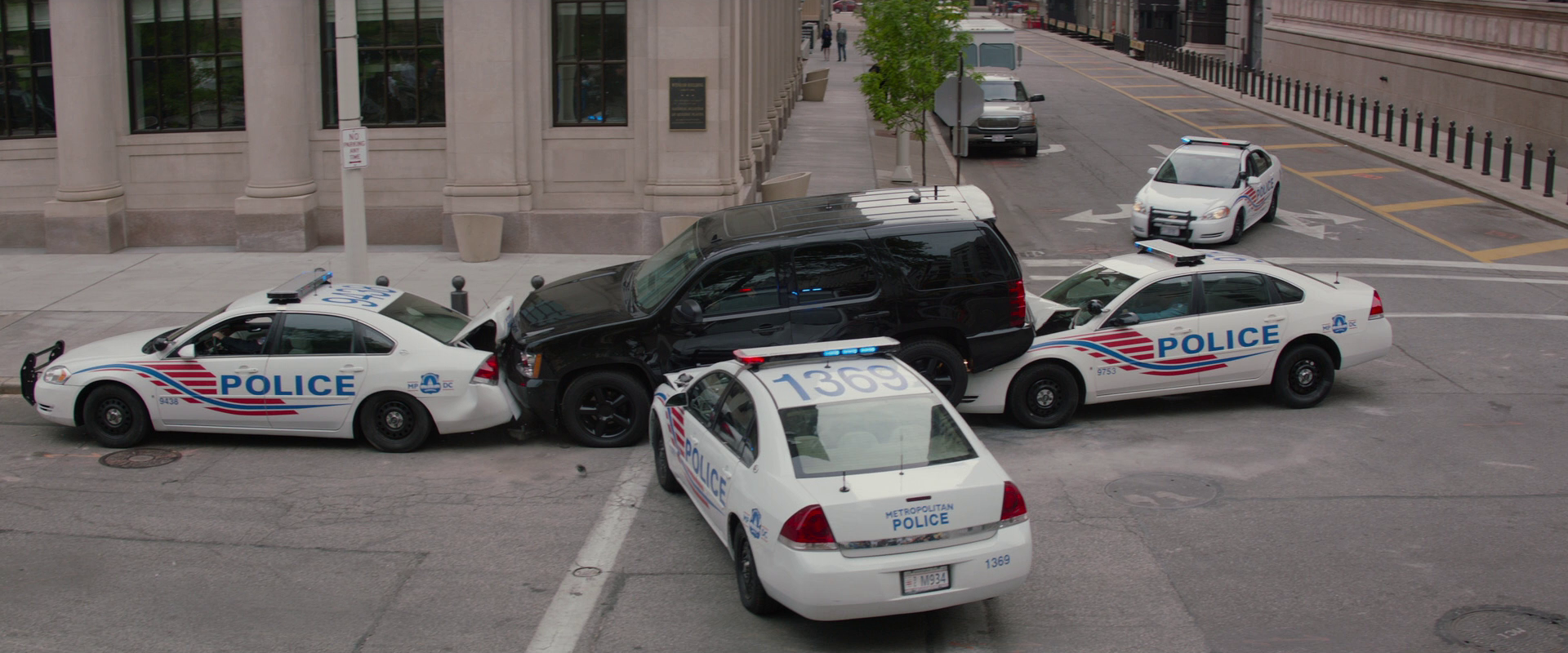
In United States v. Johnson, the Ninth Circuit Court of Appeals held that a suspicionless inventory search is only proper when it is performed to secure and to protect an arrestee’s property and to protect the police department against fraudulent claims of lost or stolen property. Evidence removed from the defendant’s car could not be justified under the inventory-search doctrine where the officers explicitly admitted that they seized the items in an effort to search for evidence of criminal activity.
BACKGROUND FACTS
On April 10, 2014, Multnomah County Sheriff’s deputies located Mr. Johnson—who had an outstanding warrant for his arrest based on a post-prison supervision violation—at the Clackamas Inn, just south of Portland, Oregon. The deputies followed Johnson to a residence in the nearby town of Gladstone and called Portland Police Bureau (PPB) Officers Corona and Ables for assistance in arresting him.
The officers did not approach Johnson at the residence, but instead waited outside. After about 20 minutes, Johnson left, and again the officers followed him. At a nearby intersection, the officers finally stopped Johnson by loosely boxing in his car; one car approached Johnson from behind while another approached from the front, effectively blocking Johnson’s ability to drive away. The cars all came to a stop within a few feet of each other, and although there was enough room for Johnson to pull his car to the side of the road, he instead parked in the lane of traffic, disrupting the flow of passing cars. When approached by the officers, Johnson could not provide proof of insurance for the car, which he was borrowing, nor could he give anything other than the first name of the car’s owner. Johnson did not know how the police could contact the owner.
The officers arrested Johnson on the outstanding warrant. After the arrest, the officers searched Johnson and found a folding knife in his front pocket, $7,100 in cash in $20 and $100 denominations in his rear pants pocket, and $150 in cash in his wallet. Johnson said that he had recently inherited the $7,100 and that he planned to purchase a car with it.
Because Johnson’s car was blocking traffic and because Johnson could not provide contact information for the car’s owner, the officers ordered it to be towed and impounded, pursuant to PPB policy. Prior to the tow, the officers conducted an inventory search of the car, again pursuant to local policy. From the interior of the car, the officers collected a combination stun gun and flashlight, a glass pipe with white residue, a jacket, and two cellphones. From the trunk, the officers collected a backpack and a duffel bag. Officer Corona testified that, when he moved the backpack and duffel in order to search for other items in the trunk, the bags felt heavy and the backpack made a metallic “clink” when he set it down on the pavement. PPB stored each of the seized pieces of property in the County property and evidence warehouse, and the $7,100 was taken into custody by the County Sherriff’s Office. Officer Corona recorded each item seized on an accompanying arrest report; the Sheriff’s Office prepared a property receipt for the $7,100 in seized cash.
A week later, Officer Corona submitted an affidavit to secure a warrant to search the seized backpack, duffel bag, and cell phones. The affidavit referred to a 2009 police report (which Corona read after arresting Johnson) that stated Johnson had previously been found with cash, weapons, and drugs in a safe concealed in his vehicle. Officer Corona’s affidavit stated that, based on the circumstances of Johnson’s recent arrest, he had probable cause to believe the bags seized from the trunk would contain similar lockboxes, and that the phones would contain evidence of drug dealing.
A warrant was duly signed by a local magistrate judge, and a search of the backpack revealed a small safe containing two bags of methamphetamine, drug-packaging materials, syringes, and a digital scale. The duffel bag contained Johnson’s personal items, and one of the cellphones contained text messages regarding drug trafficking.
Johnson was indicted on one charge of possession with intent to distribute methamphetamine in an amount of 50 grams or more, in violation of 21 U.S.C. §§ 841(a)(1), 841(b)(1)(A)(viii).
Before trial, Johnson moved to suppress the evidence found in the car and on his person at arrest. Primarily, Johnson challenged the evidence supporting the warrant to search the backpack and cellphones, arguing that it did not amount to probable cause. Johnson also argued that the officers unlawfully manipulated the bags they seized from the car in order to get a sense for what they might contain and that the inventory search of his car was invalid.
The federal district court denied the motion, concluding that there was probable cause to stop and to arrest Johnson on the outstanding warrant, the officers validly impounded Johnson’s car because it was blocking traffic, the subsequent inventory of the vehicle was “lawful because PPB mandates officers to conduct an inventory of impounded vehicles,” and the search warrant was supported by probable cause.
At trial, the government introduced the evidence found in Johnson’s car and on his person, with a particular focus on the items of evidence found in the backpack, the messages from the cellphone, and the $7,100 in cash. The jury found him guilty.
Approximately four months later, Johnson filed a motion for new trial on the basis of, among other things, two pieces of supposedly newly discovered evidence: (1) evidence showing that Johnson had indeed recently received an inheritance; and (2) a receipt from the private company that towed and impounded his car, which stated that they found various additional items of property in the car that were not listed in Officer Corona’s arrest report. After a hearing, the district court denied the motion for a new trial upon the conclusion that none of the supposedly new evidence would have resulted in a likely acquittal.
Johnson was sentenced to 188 months in prison, and he now timely appeals.
LEGAL ISSUE
Whether the trial court erred in failing to suppress evidence that was seized by City of Portland police officers during their inventory search of a criminal defendant and the car he was driving at the time of his arrest.
COURT’S ANALYSIS & CONCLUSIONS
Johnson argued that the officers’ inspection of his car exceeded the constitutionally permissible bounds for an inventory search.
The Ninth Circuit reasoned that as an exception to the warrant requirement of the Fourth Amendment to the United States Constitution, police may, without a warrant, impound and search a motor vehicle so long as they do so in conformance with the standardized procedures of the local police department and in furtherance of a community caretaking purpose, such as promoting public safety or the efficient flow of traffic. The purpose of such a search is to produce an inventory of the items in the car, in order to protect an owner’s property while it is in the custody of the police, to insure against claims of lost, stolen, or vandalized property, and to guard the police from danger. Florida v. Wells, 495 U.S. 1, 4 (1990). Thus, the purpose of the search must be non-investigative; it must be conducted on the basis of something other than suspicion of evidence of criminal activity. The search cannot be “a ruse for a general rummaging in order to discover incriminating evidence.” Wells, 495 U.S. at 4.
The Court of Appeals further reasoned that an administrative search may be invalid where the officer’s subjective purpose was to find evidence of crime. However, the mere presence of a criminal investigatory motive or a dual motive—one valid, and one impermissible— does not render an administrative stop or search invalid. Instead, the issue is whether the challenged search or seizure would have occurred in the absence of an impermissible reason.
“We thus must determine whether Johnson has produced evidence that demonstrates the officers would not have searched and seized items from the car he was driving but for an impermissible motive,” said the Court of Appeals.
“Under our circuit’s law, a suspicionless inventory search does not permit officers to search or to seize items simply because they believe the items might be of evidentiary value,” said the Court. It reasoned that as explained above, the purpose of such a search must be unrelated to criminal investigation; it must function instead to secure and to protect an arrestee’s property, and likewise to protect the police department against fraudulent claims of lost or stolen property.
“Thus, the officers’ statements directly admitting that they searched and seized items from Johnson’s car specifically to gather evidence of a suspected crime are sufficient to conclude that the warrantless search of the car was unreasonable,” said the Court, citing Orozco; a case where the Ninth Circuit found pretext where the police officers admitted that their subjective purpose was to find evidence of crime.
The Ninth Circuit concluded that the officers’ search and seizure of such evidence cannot be justified under the inventory-search doctrine:
“In the face of such evidence, it is clear to us that the officers’ decision to seize the money, bags, and cellphones from Johnson and his car would not have occurred without an improper motivation to gather evidence of crime.”
Furthermore, the Ninth Circuit reasoned that because the government has not offered any justification for the seizure of such property other than the inventory-search doctrine, the district court erred in denying Johnson’s motion to suppress. Therefore, evidence gathered from Johnson and his vehicle was inadmissible.
With that, the Ninth Circuit ruled that the federal district court’s denial of Johnson’s motion to suppress the evidence found on his person and in the car he was driving at the time of his arrest is reversed, his conviction and sentence are vacated, and the case is remanded back to the district court for further proceedings.
My opinion? Good decision. Clearly, the search conducted by police officers in this case went beyond the scope of a lawful inventory search. Please contact my office if you, a friend of family member face criminal charges involving a questionable search. The evidence might be suppressible under a well-argued pretrial motion.















